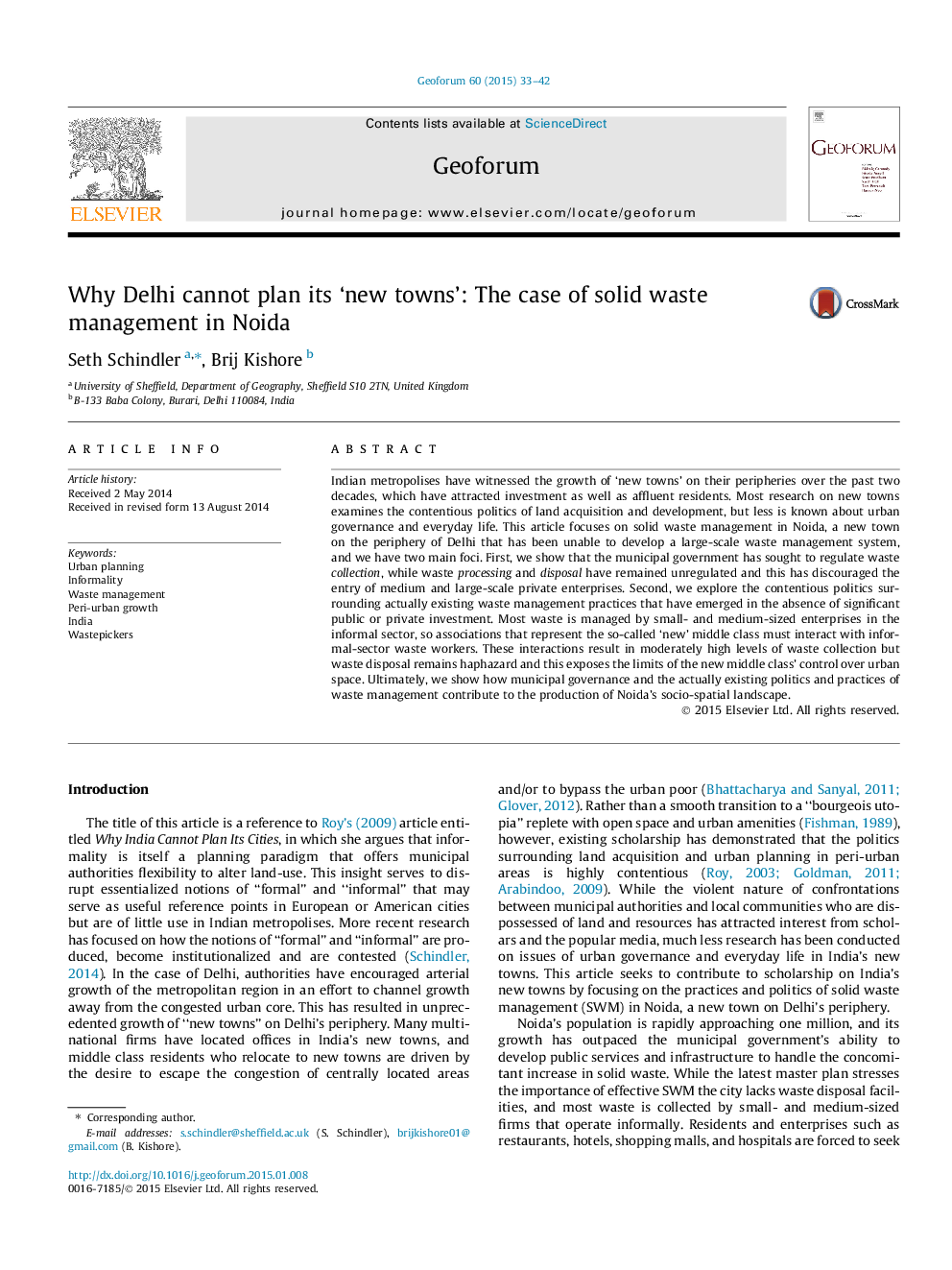| Article ID | Journal | Published Year | Pages | File Type |
|---|---|---|---|---|
| 5073719 | Geoforum | 2015 | 10 Pages |
Abstract
Indian metropolises have witnessed the growth of 'new towns' on their peripheries over the past two decades, which have attracted investment as well as affluent residents. Most research on new towns examines the contentious politics of land acquisition and development, but less is known about urban governance and everyday life. This article focuses on solid waste management in Noida, a new town on the periphery of Delhi that has been unable to develop a large-scale waste management system, and we have two main foci. First, we show that the municipal government has sought to regulate waste collection, while waste processing and disposal have remained unregulated and this has discouraged the entry of medium and large-scale private enterprises. Second, we explore the contentious politics surrounding actually existing waste management practices that have emerged in the absence of significant public or private investment. Most waste is managed by small- and medium-sized enterprises in the informal sector, so associations that represent the so-called 'new' middle class must interact with informal-sector waste workers. These interactions result in moderately high levels of waste collection but waste disposal remains haphazard and this exposes the limits of the new middle class' control over urban space. Ultimately, we show how municipal governance and the actually existing politics and practices of waste management contribute to the production of Noida's socio-spatial landscape.
Related Topics
Social Sciences and Humanities
Economics, Econometrics and Finance
Economics and Econometrics
Authors
Seth Schindler, Brij Kishore,
